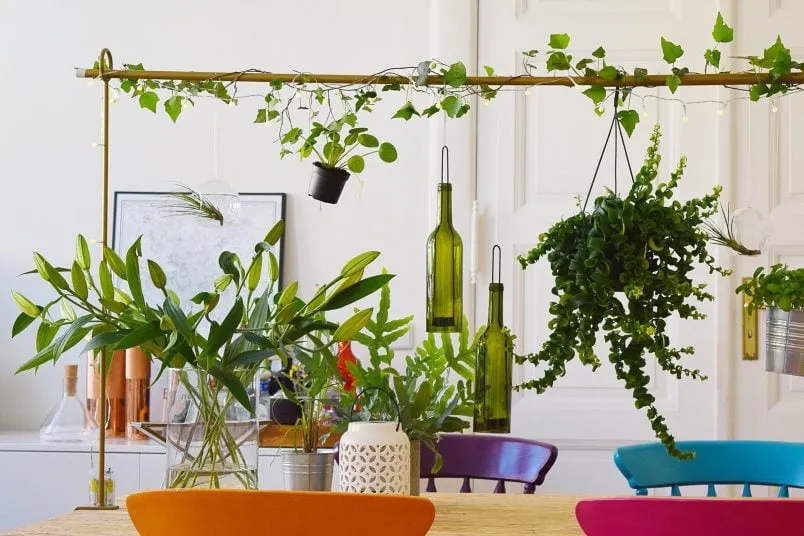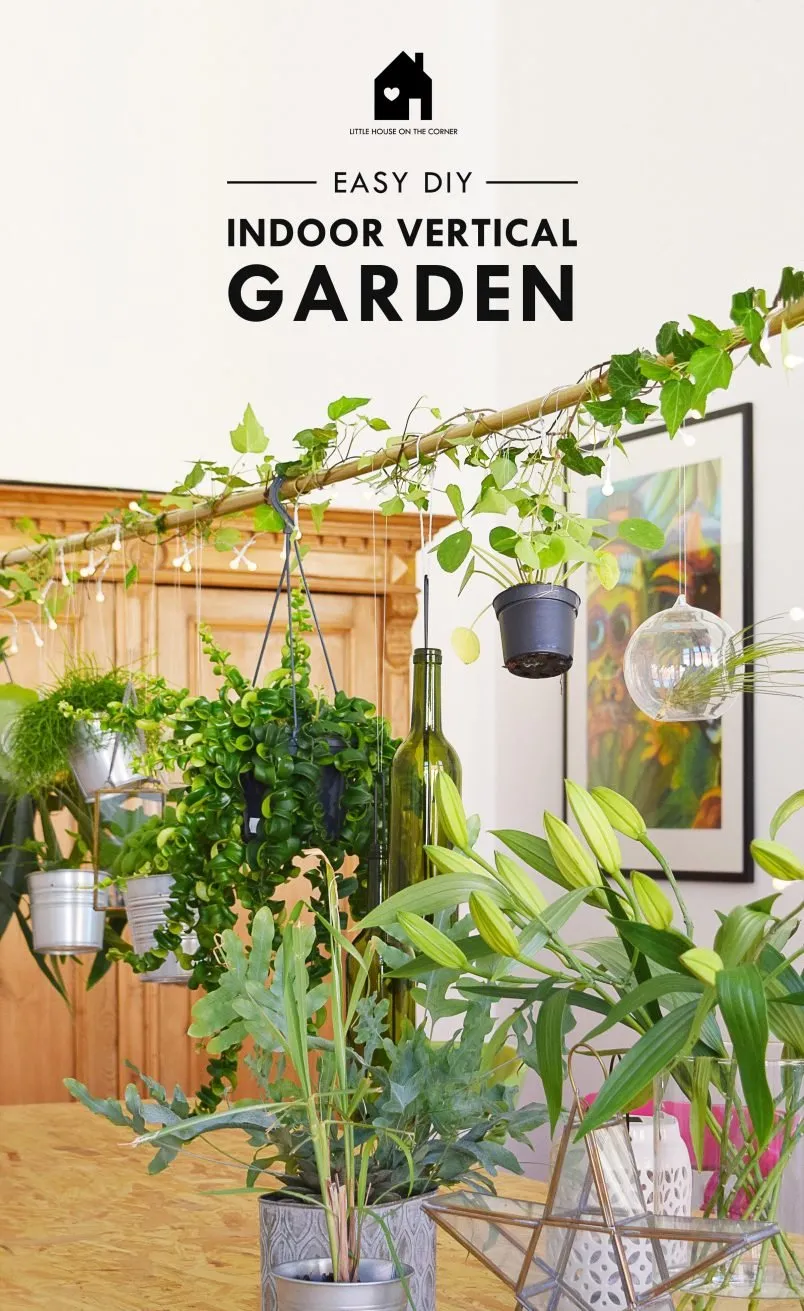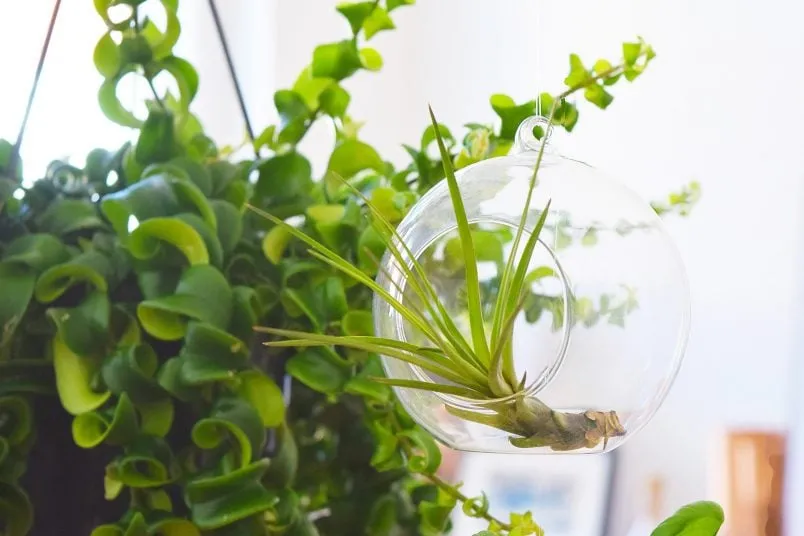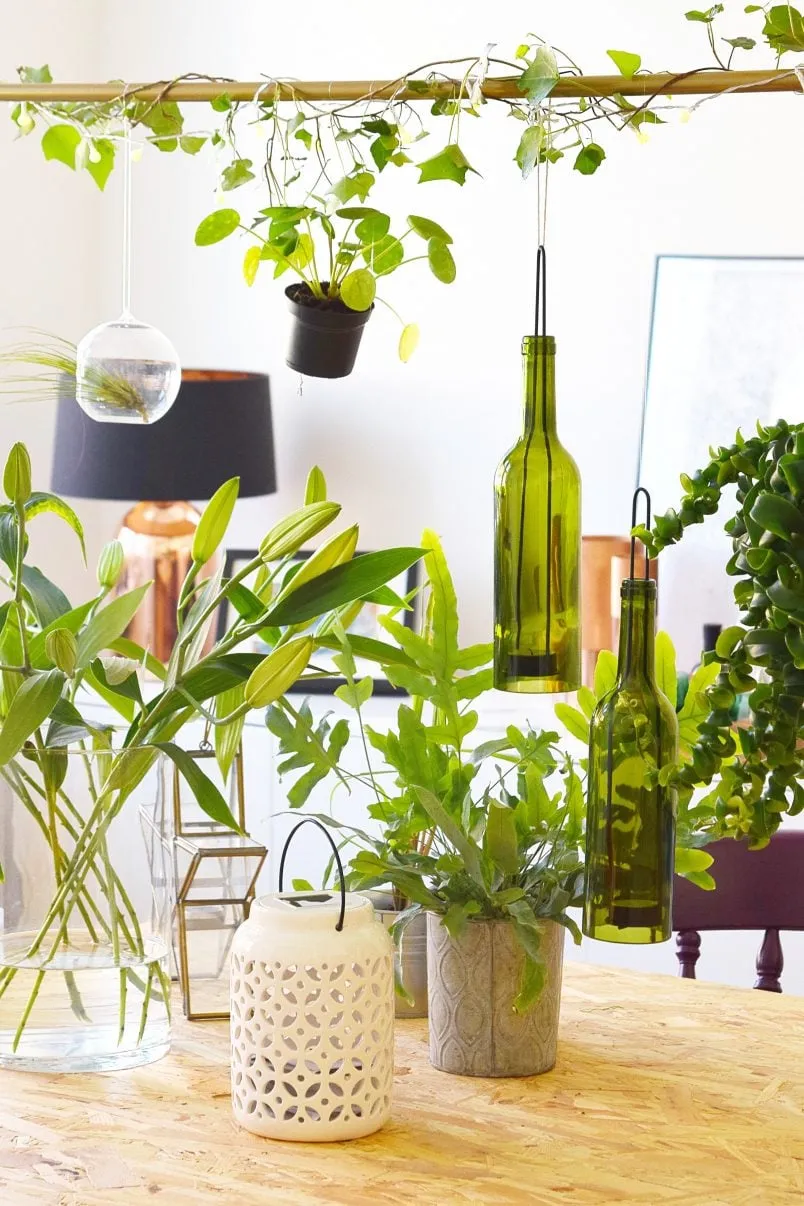Blog
Creating Your Own Stunning DIY Hanging Garden

Hey there, fellow art and nature enthusiasts! Robert Kline here, your trusted guide in the world of handmade crafts. Today, we’re diving into a project that blends the beauty of nature with the satisfaction of DIY: crafting your own hanging garden.
Why a Hanging Garden?
 DIY Hanging Garden – Little House On The Corner
DIY Hanging Garden – Little House On The Corner
A lush hanging garden adds a touch of life and color to any space.
Let’s be honest, who doesn’t love the idea of a lush, green oasis right inside their home? A hanging garden isn’t just visually appealing; it’s a statement piece, a conversation starter, and a breath of fresh air – literally!
Having indoor plants does wonders for your well-being. “Studies show that being around plants can reduce stress, boost creativity, and even improve air quality,” says gardening expert, Sarah Greenleaf.
Planning Your Masterpiece
 DIY Indoor Vertical Garden | Little House On The Corner
DIY Indoor Vertical Garden | Little House On The Corner
Plan your hanging garden to fit your space perfectly, whether it’s a small corner or a grand statement.
Choosing the Right Spot:
Think about where your hanging garden will get the best light. South-facing windows are ideal for sun-loving plants, while east-facing windows work well for those that prefer a bit of morning sun.
Picking Your Plants:
For beginners, low-maintenance plants are your best bet. Some easy-care options include:
- Snake Plants: These beauties tolerate low light and infrequent watering.
- ZZ Plants: Another champion of low-light conditions, ZZ plants can even handle some neglect.
- Spider Plants: Not only are they easy to care for, but they also purify the air and produce adorable baby spider plants!
Gathering Your Materials:
You’ll need:
- A sturdy planter or container
- Hanging hardware (hooks, chains, or rope)
- Potting soil
- Your chosen plants
- Optional: Decorative elements (moss, pebbles, figurines)
Bringing Your Vision to Life
 DIY Hanging Garden – Airplant – Little House On The Corner
DIY Hanging Garden – Airplant – Little House On The Corner
Get creative with your plant choices and create a visually stunning arrangement.
Step 1: Preparing Your Planter
Ensure your planter has drainage holes to prevent overwatering. If not, you can easily drill some yourself.
Step 2: Planting with Care
Add a layer of potting soil to your planter, then gently remove your plants from their nursery pots and arrange them in your desired design. Fill in any gaps with more soil, making sure to leave about an inch of space at the top.
Step 3: Hanging Your Garden
Follow the instructions provided with your hanging hardware to securely hang your planter in your chosen location.
Tips for a Thriving Hanging Garden
 DIY Hanging Garden – Little House On The Corner
DIY Hanging Garden – Little House On The Corner
Proper care is essential for a flourishing hanging garden. Water your plants regularly and provide them with adequate sunlight.
- Watering Wisely: Overwatering is a common mistake. Stick your finger about an inch into the soil – if it feels dry, it’s time to water.
- Light is Key: Observe how much light your chosen spot receives throughout the day and adjust your plant selection accordingly.
- Fertilize Regularly: Give your plants a nutritional boost during the growing season (spring and summer) with a balanced liquid fertilizer.
The Joys of a DIY Hanging Garden
 Go Green For Your Health – #GoGreener – Little House On The Corner
Go Green For Your Health – #GoGreener – Little House On The Corner
Embrace the therapeutic benefits of gardening and enjoy the calming presence of your hanging garden.
A DIY hanging garden is more than just a decoration; it’s a miniature ecosystem that brings life and vibrancy to your home. It’s a testament to your creativity and a constant reminder of nature’s beauty. So, why not roll up your sleeves, get your hands dirty, and create your own stunning hanging garden today?
I’d love to see your creations! Share pictures of your DIY hanging gardens in the comments below and let’s inspire each other. And for more unique handmade gifts and crafting inspiration, be sure to explore the rest of the Robert Kline Art website!
